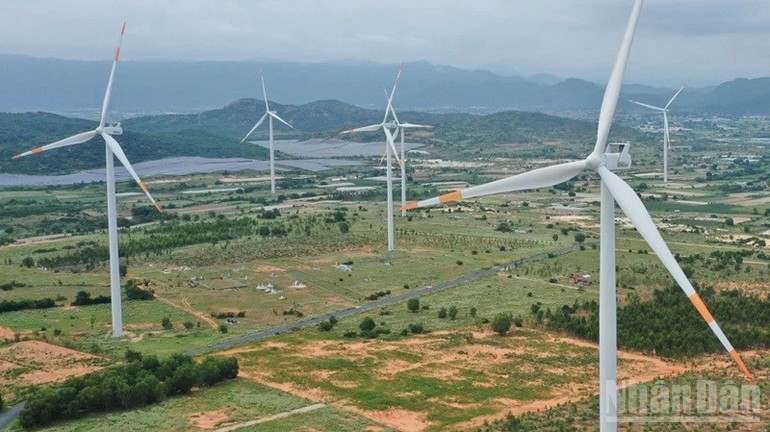Vietnamese firms seek to gain foothold in global energy market
In the context of a dynamic global energy transition, enhancing the competitiveness and position of Vietnamese enterprises in the global energy supply chain is not only an urgent necessity but also a strategic opportunity for the country to make breakthroughs and deepen its global integration.

The pressing demand for energy shift
The forum “Enhancing the Position of Vietnamese Enterprises in the Global Energy Supply Chain”, held by the Corporate Finance Magazine with the support of the Viet Nam National Oil and Gas Group (Petrovietnam) in Ha Noi on June 24, provided multiple feasible directions and essential policy suggestions for the path ahead.
The world is undergoing a profound shift towards a low-carbon economy. The global energy supply chain is being reshaped under the pressure of climate change, geopolitical instability, technological advancements, and sustainable development standards. Within this evolving landscape, Viet Nam is considered a country with significant competitive advantages.
According to Dr Ha Khac Minh, Editor-in-Chief of the Corporate Finance Magazine, Viet Nam has made many strong international commitments, such as the pledges to achieve net-zero emissions by 2050 at COP26 and COP28, and the approval of Power Development Plan 8, which outlines a clear roadmap for the development of clean energy.
In addition, investment incentive policies, administrative reform, and the expansion of international cooperation are gradually helping Viet Nam build a modern and globally integrated energy industry.
Dr Ngo Duc Lam, former Deputy Director of the Institute of Energy under the Ministry of Industry and Trade, assessed that electricity is a “step ahead” factor in economic development. Therefore, to maintain an annual GDP growth rate of 8%, the energy sector must therefore grow by 10–11% and sustain this rate in the coming years.
Dr Lam noted that all the electricity needed for Viet Nam’s growth will gradually shift to renewable energy sources, primarily wind and solar power. However, the rapid increase in renewable energy also presents major challenges in grid operation due to its instability and weather dependency.
What prospects await Vietnamese businesses?
According to Lam, Viet Nam is facing significant investment opportunities in the energy sector. The energy transition is opening up major prospects for Vietnamese enterprises to participate in the energy supply chain.
To achieve over 183,000MW of power generation capacity by 2030 and develop matching transmission infrastructure, Viet Nam will require around 200 billion USD in investment over the next decade. Clearly, the Viet Nam Electricity Group (EVN) alone cannot shoulder this enormous investment burden. As such, this is precisely the moment when domestic enterprises must step in, Dr Lam emphasised.
Experts at the forum agreed that for Vietnamese enterprises to truly gain a foothold in the energy supply chain, it is essential to improve the regulatory framework and investment environment. Accordingly, policy must take the lead and ensure synchronisation between central and local levels, as well as across sectors — energy, finance, land, environment, and labour.

Furthermore, Vietnamese enterprises should be supported in terms of technology, finance, and international cooperation to participate more deeply in the value chain. The government needs to introduce policies encouraging research, technology transfer, and the development of “Make in Viet Nam” products for the renewable energy sector.
Training a high-quality workforce of engineers and technical experts is also a pressing requirement. In parallel, green finance mechanisms should be promoted, alongside mobilisation of private capital and support for enterprises to access long-term, preferential credit for green projects.
At the same time, policies promoting the development of the private economy continue to be introduced to create a favourable legal environment that serves as a foundation for Vietnamese enterprises to actively engage in the energy supply chain.








